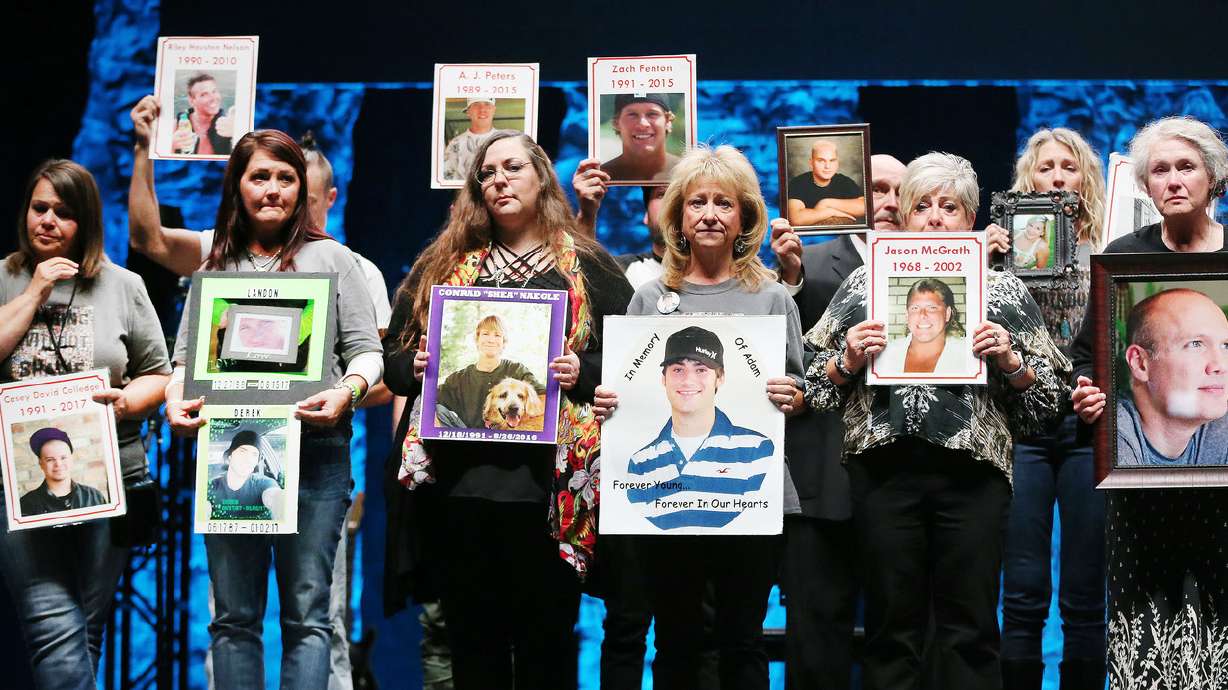Estimated read time: 4-5 minutes
This archived news story is available only for your personal, non-commercial use. Information in the story may be outdated or superseded by additional information. Reading or replaying the story in its archived form does not constitute a republication of the story.
SALT LAKE CITY — Noted author and social scientist Arthur Brooks was searching for an epiphany about how to solve the growing opioid crisis when he came across a lecture about poverty by the late Cardinal Francis George of Chicago.
In the speech, the cardinal talked about trying to raise money from some billionaires to help poor people, people they didn't know.
"The poor need you to pull them out of poverty and you need the poor to keep you out of hell," George told them.
Brooks seized on the quote. He asked himself if he needs people on the margins of society, eventually landing on this insight: "If we truly want to help people, we should need them."
Brooks, president of the American Enterprise Institute, spoke Friday at Sen. Mike Lee's 2018 Solutions Summit. Titled, "Instead — Connecting for a Cure," the all-day event focused on combatting opioid addiction in Utah.
In the morning, about 5,000 high school students filled the Vivint Smart Home Arena for a fast-paced mix of speakers — including many who had battled addictions such as UFC fighter Court McGee — songs, cheers and video clips, as well as a short film produced by the Mark Wahlberg Foundation. The message was how easy it is to lose oneself to the lure of opioids and how deadly that can be.
The afternoon session featured speeches from government officials, business moguls, religious leaders, authors and performers, as well as panel discussions on health care, recovery and law enforcement.
According to statistics provided at the conference, nearly 50,000 Americans died from opioid-related overdoses last year. Opioid-related deaths increased 110 percent in Utah from 2002 to 2016. But while deaths rose 10 percent across the country, they fell almost 20 percent in the state last year.
Though the numbers dropped in Utah, they remain high because they were "off the charts" in previous years, Lee said.
Uttam Dhillon, acting administrator of the Drug Enforcement Administration, said attacking the opioid crisis is his agency’s top priority, not just through law enforcement but working with treatment providers and prevention workers.
“We will not stop until we win this battle,” he said.

Some of the speakers, including Brooks, talked about having to find new ways to address the opioid epidemic as well as poverty and suicide. Society won't solve the problem without asking the right questions, he said.
"Any policy that doesn't make people more needed is a bad policy. If it simply helps, it's not good enough," he said.
Even with Utah's growing economy, there are still people dying from drug and alcohol abuse and suicide, Brooks said.
"How long would it take you to know personally, emotionally, socially if all of the drug-addicted people, if all of the formerly incarcerated, all of the poor suddenly disappeared? How long would it take you to know? I dare say longer than it should," he said
Brooks acknowledged it would take him longer than it should because his life doesn't interact with people on the margin.
The answer to the problem can be found among those who are suffering the problem. But we have got to be able to think about creative ways to give these young people a voice.
–Bob Woodson
"I live a life that reflects the idea that I don’t need them, and that is the problem," he said. "The problem is not just what they need. The problem is that I need them, and I need to understand that in a more fundamental, moral way."
Dignity, he said, is the No. 1 ingredient to solving problems in life.
"Help doesn't bring dignity. Need brings dignity," Brooks said.
Bob Woodson, who works with community and political leaders to improve impoverished neighborhoods through The Woodson Center, said education and intervention would not solve the drug-addiction problem.
"Drug addiction, opiate addiction it is not a rational problem that we have. A rational problem can be solved by a rational solution," he said. "If knowledge were the issue, you would not have people with Ph.D.s, people with M.D.s, drug counselors who are drug addicts."
Faith in God and serving others, he said, is missing in many discussions about drug addiction and suicide. Feelings of emptiness and lack of meaning in life causes people to destroy themselves and others, he said.
Woodson also said looking to those who have overcome addiction or survived crime-infested neighbors would provide mentors for young people.
"The answer to the problem can be found among those who (are) suffering the problem. But we have got to be able to think about creative ways to give these young people a voice," he said.
J.D. Vance, author of "Hillbilly Elegy," asked the crowd to follow the advice of his friend who runs a home for people struggling with addiction: At the end of the day, what they need is love. If that doesn't work, love them some more. And if that doesn't work, love them a little more.










